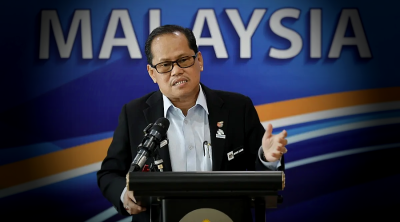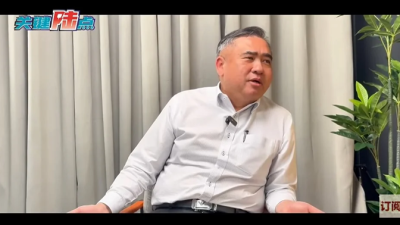
On 22 July, a senior deputy assistant director in the Immigration Department, 41 year old, Nas Suffian Nasrun, was charged with laundering around RM1 million in bribes.
He pleaded not guilty in the Sessions Court to five charges of involvement in money laundering between 2022 and 2024.
The amount involved was around RM933,295.
The charges were framed under Section 4(1)(a) and Section 4(1)(b) of the Anti-Money Laundering, Anti-Terrorism Financing and Proceeds of Unlawful Activities Act, with each charge carrying a jail term not exceeding 15-years and a fine not less than five times the amount of bribe or RM5 million, whichever is higher, upon conviction.
All his family members, with their heads bowed low, and looking sad, were in court to hear the proceedings.
If being corrupt was not bad enough, we also learn that he had used his mother’s bank account to receive the money via several online transactions.
To involve family members just shows the depravity of his actions.
The deputy public prosecutor Siti Amirah Muhammad Ali refused him bail as the offenses are non-bailable and recommended that the court set RM800,000 with one surety if it wanted to use its discretion to grant bail.
She advised that he surrender his passport to the court, and report to the Malaysian Anti-Corruption Commission (MACC) in Johor monthly and not harass prosecution witnesses if he was granted bail.
Siti warned that he was a flight risk, and as an immigration officer for the past 19 years, would be knowledgeable about the country’s borders.
In mitigation, his lawyer Muhammad Zaim Rosli pleaded for a bail of between RM10,000 and RM15,000 for each charge and said that Nas’ wife was also a senior immigration officer and between them, shared five children aged between 7 and 15.
Despite his claim that Nas Suffian had a clean work record, and had never been charged with disciplinary action, his lawyer warned that his client faced the possibility of being suspended after his charges.
He even urged the court to be lenient towards his client and tried to paint a picture of a man who had been cooperative during the investigations, whom he said had pledged to attend all court proceedings.
However, the judge Mohd Nasir Nordin set bail at RM100,000, ordered Nas Suffian to surrender his passport to the court, report to the MACC office monthly and warned him not to harass prosecution witnesses.
Malaysians will be wondering why it took so long for this corrupt immigration officer to be discovered.
There will have been several tell-tale signs, and that he may perhaps, be living beyond the means of someone who is paid a civil servant’s salary.
He is not the first, nor the last corrupt official to be charged with corruption.
The failure to punish these allegedly corrupt politicians and civil servants do not fill us with confidence, as those who did wrong were never punished. There are no deterrents.
Malaysians are also aware that attempting to lodge a police report to complain about corrupt civil servants may take hours, and very few people are prepared for this. More importantly, they also fear a backlash.
Some people are also confused. They may not realize that when a contractor treats a government servant to dinner at an expensive restaurant, the businessperson is trying to buy influence.
The ordinary rakyat may think the contractor is being nice. He is not.
The confusion members of the public face is that they may not be aware that this action is a form of corruption.
When the government servant accepts bribes, he will soon be eating out of the contractor’s hands. Once he is trapped there is no going back. He is open to blackmail.
So, is this what stops corrupt government officials and politicians from coming clean? Which does he fear most? The shame, his guilt, or that he does not want the exposure?
What is the cost of the corruption perpetrated by corrupt government officers?
We read about corrupt senior politicians and ministers who have committed acts of corruption but are let off with a Discharge Not Amounting to an Acquittal (DNAA) and in some cases, these corrupt officials have been fully acquitted.
The failure to punish these allegedly corrupt politicians and civil servants do not fill us with confidence, as those who did wrong were never punished. There are no deterrents.
More importantly, what have the actions of corrupt politicians, ministers and civil servants cost us over the years?
Is corruption becoming a way of life in Malaysia? Most of us fear that corruption is becoming normalized in our society, and that we are no longer shocked when yet another corruption scandal is unearthed.
When the court set September 12 for mention, we wonder if justice Mohd Nasir would make Nas Suffian an example by imposing the maximum sentence on him?
It is time the nation has a suitable deterrent to stop others from thinking that corruption is such a simple thing to do, because thus far, few have been charged and most have been able to escape scot-free.

(Mariam Mokhtar is a Freelance Writer.)
ADVERTISEMENT
ADVERTISEMENT








































